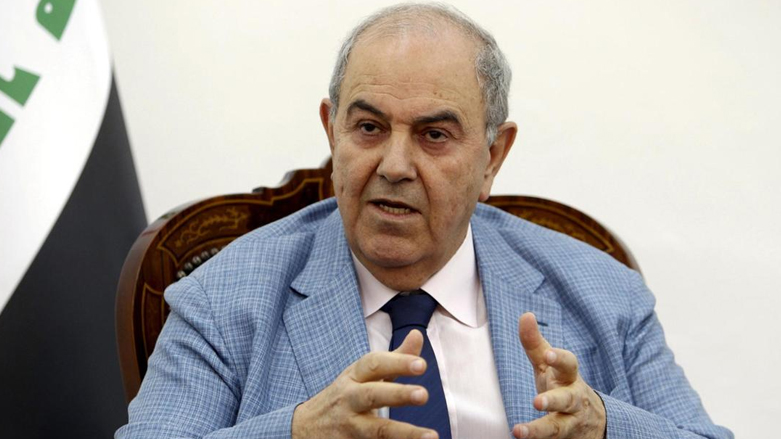Iraqi VP’s Coalition rejects election results, calls for formation of emergency provisional government

ERBIL (Kurdistan 24) – The National Coalition, led by Iraqi Vice-President Ayad Allawi, on Sunday called for the rejection of the – as of yet unannounced – results of the Iraqi elections held on Saturday and urged the establishment of an emergency provisional government.
“We call for new elections, asking the current government to remain in power and ensure conditions are met for an election that reflects the aspirations and wants of our fellow citizens be held,” read a statement released by the coalition.
The statement explained the coalition believes the “reluctance of the Iraqi people to participate in the election, violence, widespread fraud, misinformation campaigns, and the sale of voter cards,” were reason enough to demand elections be held anew to ensure fairness and transparency.
Turnout stood at 44.5 percent, according to Iraq’s Independent High Electoral Commission (IHEC). It is the lowest voter turnout rate in Iraq in the past 13 years. In the 2014 elections, roughly 60 percent headed to the polls.
The statement also alleged Internally Displaced Persons (IDPs) were not fully able to cast their ballots.
There were reports of IDPs facing difficulties at polling stations across the country, but issues were reportedly promptly resolved, according to the Electoral Commission official in Erbil
Allawi’s coalition highlighted the different procedures people in each region of the country had to undergo to be able to vote, describing the electoral process as ‘foggy.’
Despite various measures taken by the Commission, many areas still faced issues during the voting process which could not be resolved in time. As a result, the right of a number of people to cast their vote was denied.
Unlike previous elections, a new electronic device was used in Saturday’s parliamentary elections to verify voter cards, fingerprints, and to count ballots—a system meant to streamline the electoral process and prevent fraud from taking place.
Political parties across the country, however, have asserted there were incidents of voter fraud at multiple polling stations.
More than 24 million Iraqis were eligible to vote in the elections, the fourth national election since the fall of Saddam Hussein and his dictatorial regime in 2003. Three million people were able to vote in the Kurdistan Region.
Editing by Nadia Riva
